We arrive a little outside the old town at a large building with a modern entrance. This is where the traditional Deinhardt brewery is located. Good beer and good food at the Weimar Felsenkeller.
Even as we climb the stairs to the guest room, I breathe in the wonderful smell of the mash… was this supposed to be brewing in the guest room? And that’s right – in the middle of the guest room are the unmistakable copper kettles in which the mash has just been boiled and later pumped off. If the beer tastes as good as it smells, then we’ve come to the right place.
About the Weimar Felsenkeller
In 1875 Ludwig Deinhardt acquired the Weimar city brewery. The brewing trade was not unknown to him, as his family had been brewing beer in Franconia since the 17th century. The Weimar city brewery also included the vaulted cellar in the Felsenkeller, which was still outside the city at the time. They also brewed beer there and stored mainly the beer from the city brewery.
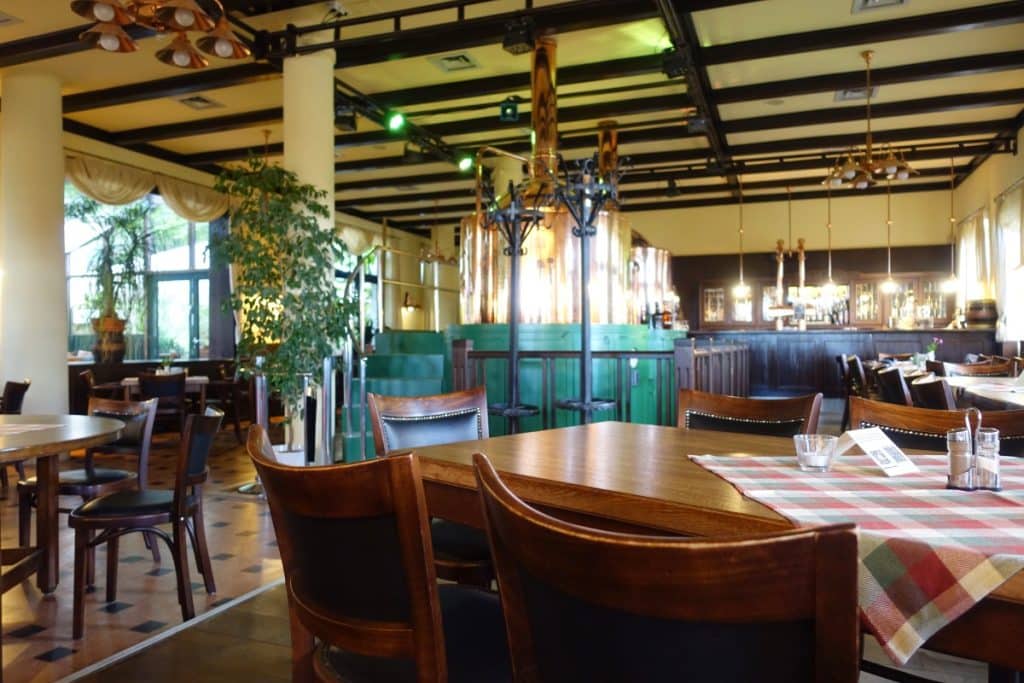
The family decided to erect a building at the Felsenkeller. Until the 1950s, this was a popular destination for excursions in the region. In 1990, after some remodelling, Thuringia’s first pub brewery finally opened. This was taken over by the Geiger family in 2005. Today the guest room seats about 170 and in summer guests can sit in a beer garden (about 60 seats).
We sat in the large guest room with a view of the brew kettles and felt very comfortable. After being greeted in a very friendly way, we ordered something to eat and, of course, a beer.
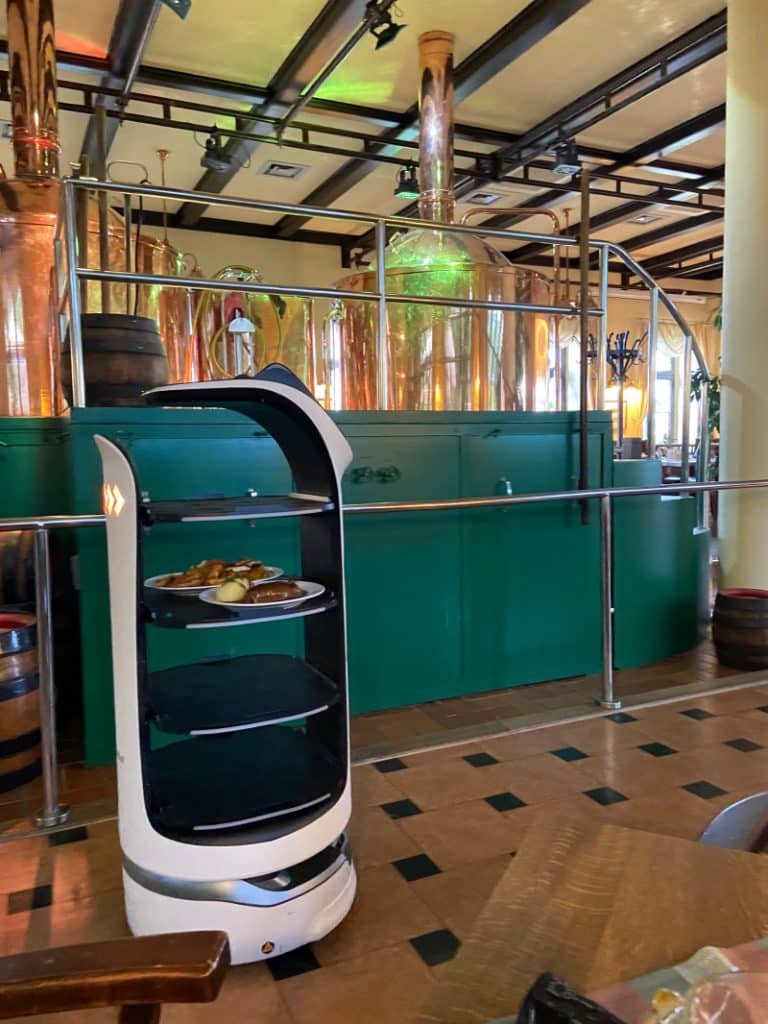
When the food arrived, I had to look twice. A robot drove directly to our table and transported the plates. A little irritated, I thought about whether we should just take the food down. But the very nice waitress was already there and serving the food.
Of course I just had to ask… The serving robot makes the staff’s work easier in this restaurant. Due to a lack of staff, fewer people are now doing the same work. For example, the robot brings the cleared dishes directly to the kitchen – the staff can do other tasks during this time. The robot brings the food directly to the table, which also saves the employee a trip to the kitchen.
Admittedly it is unusual, but we were rather fascinated to follow the specially created routes and observe the technology. The staff had time for a consultation, a conversation, were not hectic and did not have to carry heavy dishes all the time, which is certainly good for your health.
It tasted good too! We ate roast pork in black beer sauce with homemade white cabbage salad and Thuringian dumplings. The meat was wonderfully juicy and melted in your mouth. I almost had enough of the dumplings with the fantastic black beer sauce, just so delicious!
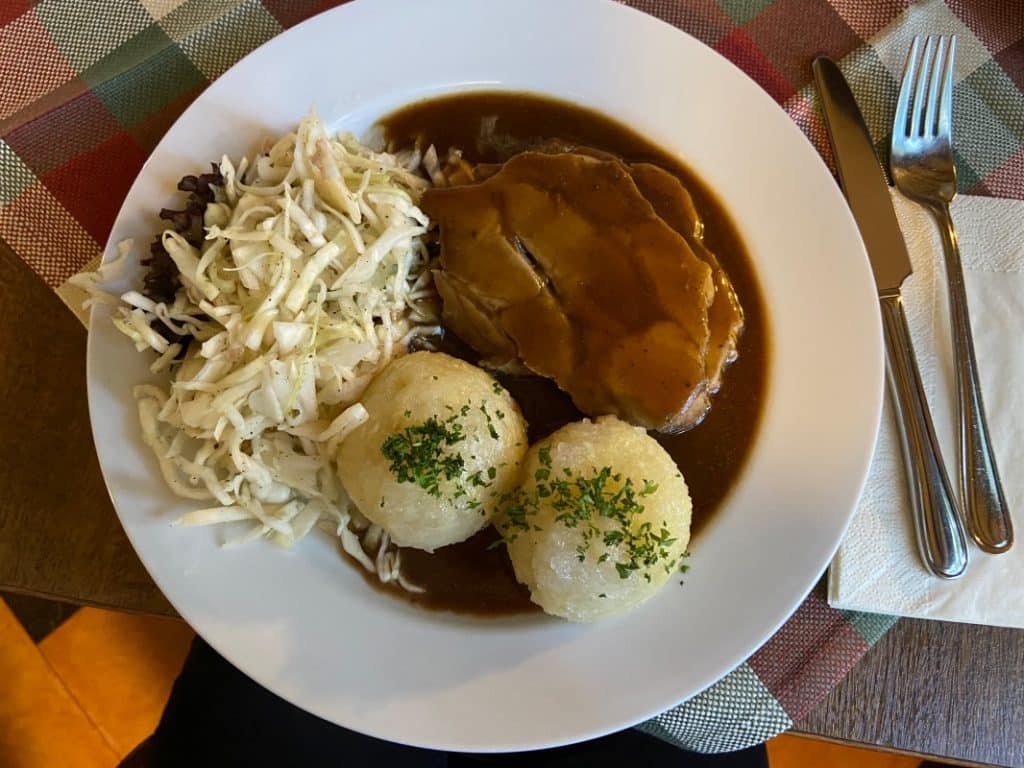
Beer in the Felsenkeller
The beer from the Deinhardt brewery in Weimar is brewed according to the German Purity Law of 1516. The large kettles stand in the middle of the guest room and during our visit we were lucky that the brewer was on site.
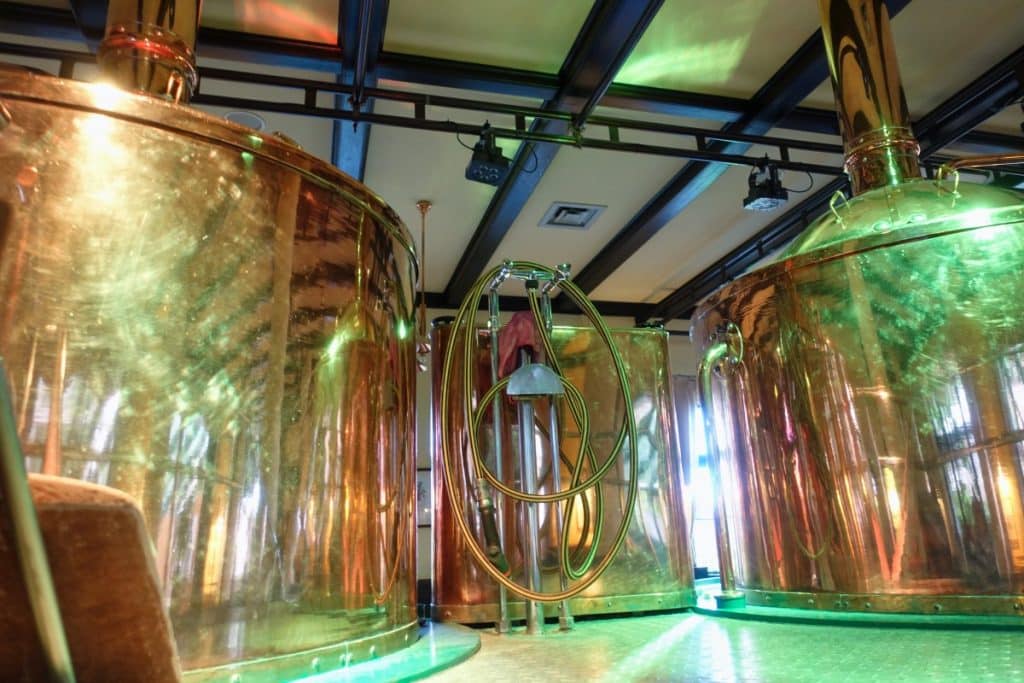
He told me that in the large kettles the ground brewing malt is cooked with the hops for about 90 minutes. This allows the desired original wort content for the beer to develop. After the wort has cooled down to 6 degrees, he pumps it into the fermentation vat in the cellar. There the brewer’s yeast is added and everything is left to stand for 7-8 days. At 6-9 degrees, the transformation of the extract into alcohol and carbon dioxide begins. The beer then goes to the storage cellar for secondary fermentation. There, in the closed tanks, it matures for about 30 days until it reaches the desired taste.
Here in the Felsenkeller you can enjoy the freshly brewed and tapped beer. Or you can also take it home bottled.
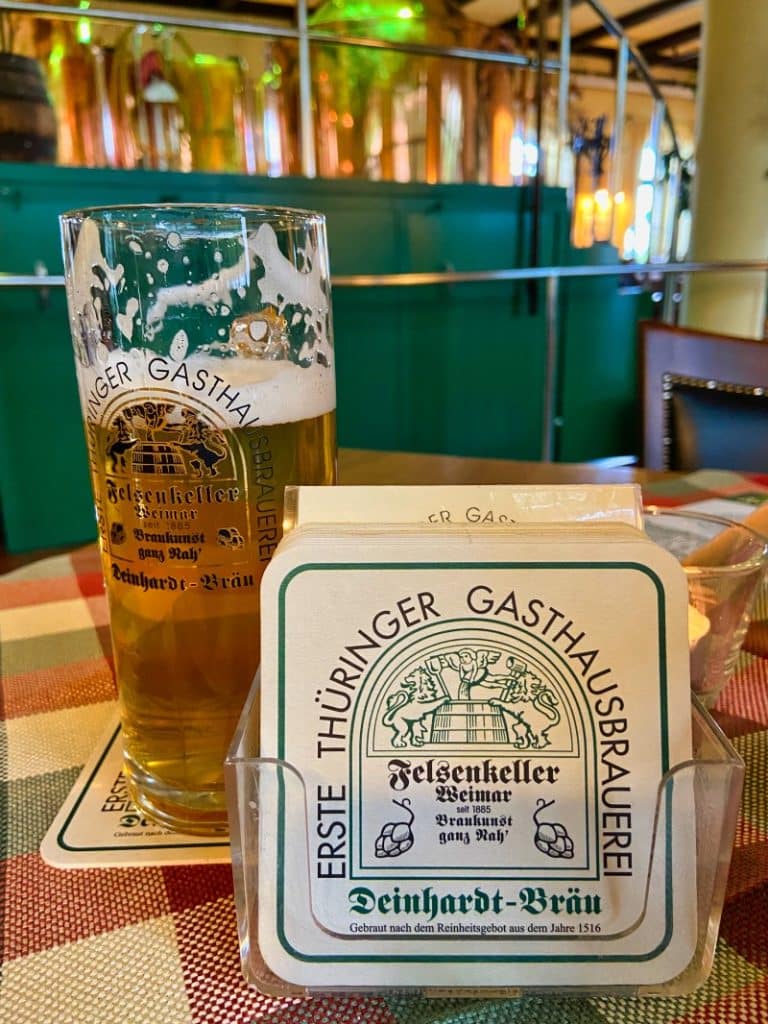
Of course, we took a very close look at the beer menu. It was hard to make a decision, fortunately many beers were seasonal beers (winter beer, Märzen, Maibock, summer beer, multigrain beer, potato drink, bock beer, Christmas beer) and so not all were available at the moment.
I chose one of the seasonal beers on offer in September. This drink, which is a yeast-fermented alcoholic beverage due to its production, completely surprised me. The Kartoffeltrunk is a “beer” made from barley malt and potato starch with 5.2% alcohol content. I don’t know exactly what I expected, but it didn’t taste like potatoes, maybe a little earthy. The drink is not a light beer, but fits well into the cooler autumn. It is full-bodied and I liked it very much.
The Deinhardt – Bräu Schwarzbier was just the right complement to the meal. The malty, very dark beer has a pleasant sweetness that makes it very drinkable. With an alcohol content of 4.9%, it is one of the somewhat “lighter” beers, but this is no disadvantage at all in terms of taste.
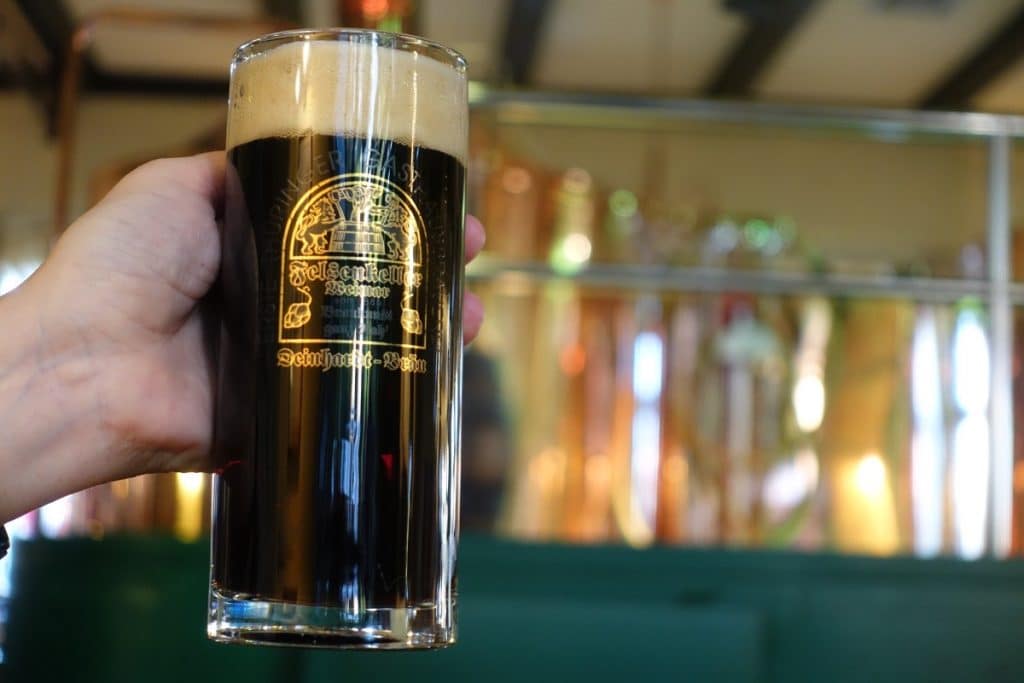
The Deinhardt – Bräu Pilsner is quite hoppy and brewed in the Pilsner style. Here you can taste very clearly that it is a Pilsner, the taste is concise.
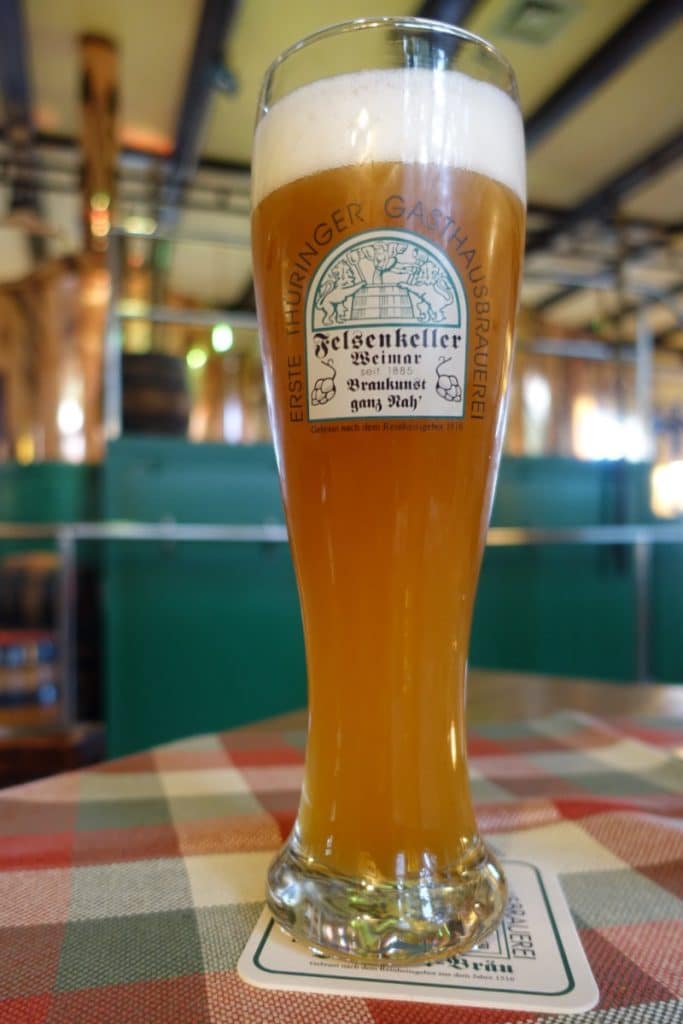
In top-fermented Hefeweizen is also in the fixed range of the Deinhardt brewery. A wonderful soft beer with a fruity note. For me, the ideal summer beer.
We really enjoyed the beer and the food and will definitely try other Deinhardt-Bräu seasonal beers on our next visit to Weimar.
Address:
Humboldstraße 37
99425 Weimar

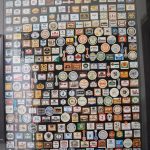




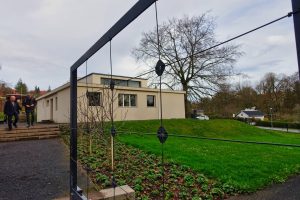
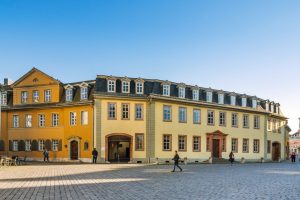
Leave a Reply